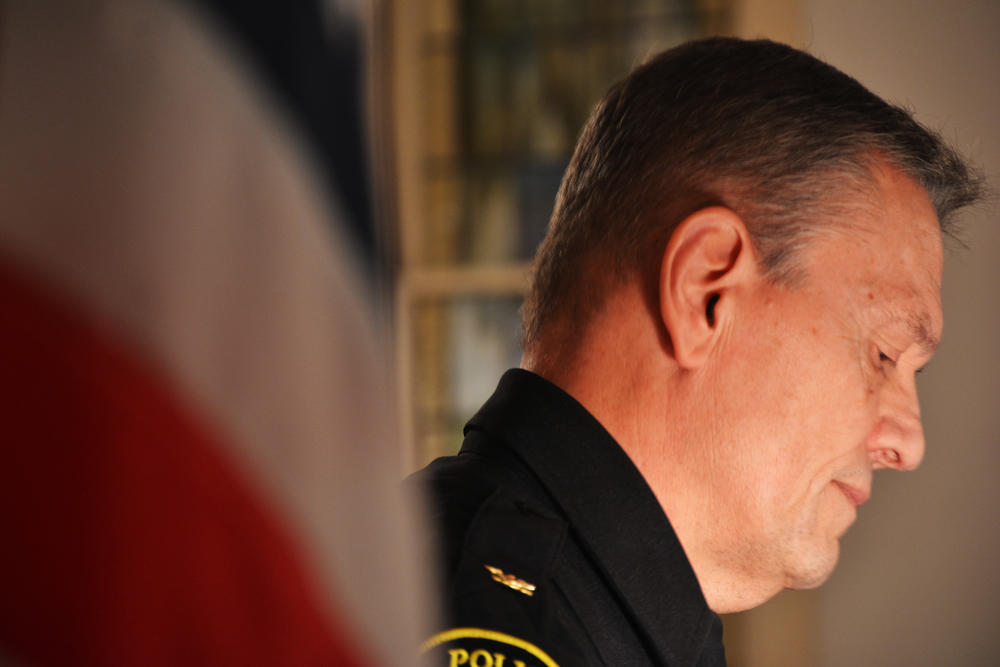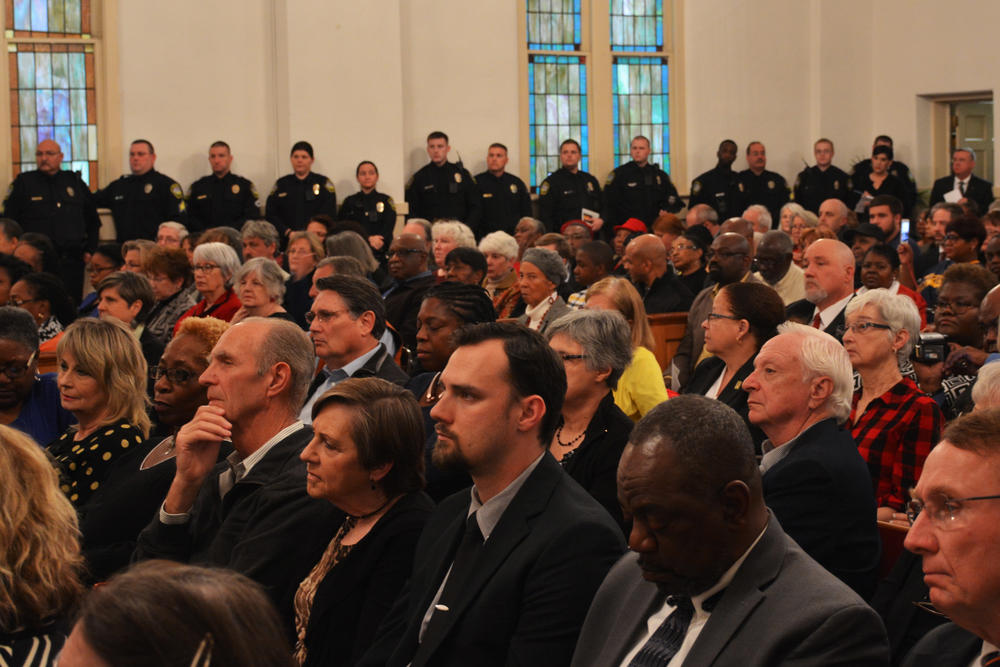Section Branding
Header Content
Police Chief Apologizes For Long-Ago Lynching
Primary Content
A Georgia police department is looking at its past to strengthen its relationship with the African-American community.
Last week in LaGrange, something rare happened: the police chief made a public apology for his agency's role in a lynching that happened more than 75 years ago.
In 1940, a group of masked men came to the city jail in LaGrange looking for 16-year-old Austin Callaway, a young black man who’d been accused of attacking a white woman.
Police officers didn’t stand in their way. The men took Callaway to a country road where he was shot and left for dead.
Last Thursday members of that same police force stood with the rest of the community at the Warren Temple United Methodist Church to remember Callaway and to hear Police Chief Lou Dekmar deliver a message.
“I sincerely regret and denounce the role our police department played in Austin’s lynching, both through our action and our inaction, and for that I’m profoundly sorry,” Dekmar said. “It should never have happened.”
Dekmar also apologized for how long the murder remained hidden. He said the killing received only a summary investigation and that there was no record of the matter in police department records.
But the night wasn’t just a chance to atone for sins of the past.
“This acknowledgement and apology is a further opportunity to build trust,” Dekmar said. “But it must also be accompanied by a commitment to never again tolerate a climate of injustice.”
After applause came music, a heartfelt version of the hymn “How I Got Over,” and an opportunity for members of the black community to respond.
“What a great night this is: all these police officers and we’re not getting arrested,” said LaGrange Councilman Willie Edmondson to laughter and applause.
Leaders of the local and state NAACP and a relative of Austin Callaway also delivered remarks to the audience. The tone was reflective and forward-looking.
“From this public apology tonight, we can now start the healing process and come together as a community in love and forgiveness,” Edmondson said.
But the process of healing isn’t easy.
“I mean, apology is never enough,” said Kristen Reed after watching the service. “I don’t think an apology is ever enough for a murder or for a lynching and for the injustice that followed.”
Still, she said it’s not often law enforcement apologizes for mistreatment of communities of color.
“And for Lou Dekmar to stand up there and say I'm sorry for something he didn't do...sends a message, especially in a climate like this,” Reed said.
For attendee Tim Simpson that message was simple: the people who work in law enforcement are just people.
“With police, they do have a power, but with that you have to be vulnerable,” he said. “So, just to see them being able to come down and acknowledge it, I think that opens up the door for more communication and more growth as a community.”
“It’s a start. A good start,” said Benita Epps upon considering the events of the evening.
She made it clear that one one apology won't erase decades of division, but was hopeful it was a first step in bringing all parts of the community together.
“Because that’s history, and if you don’t recognize your history, you’re not going to be able to move forward I don’t think,” Epps said.
She also gave voice to an idea repeated throughout the evening: there’s a lot of difficult history to sort through, but open discussions about the mistakes of the past will lead to more productive conversations about the future.



